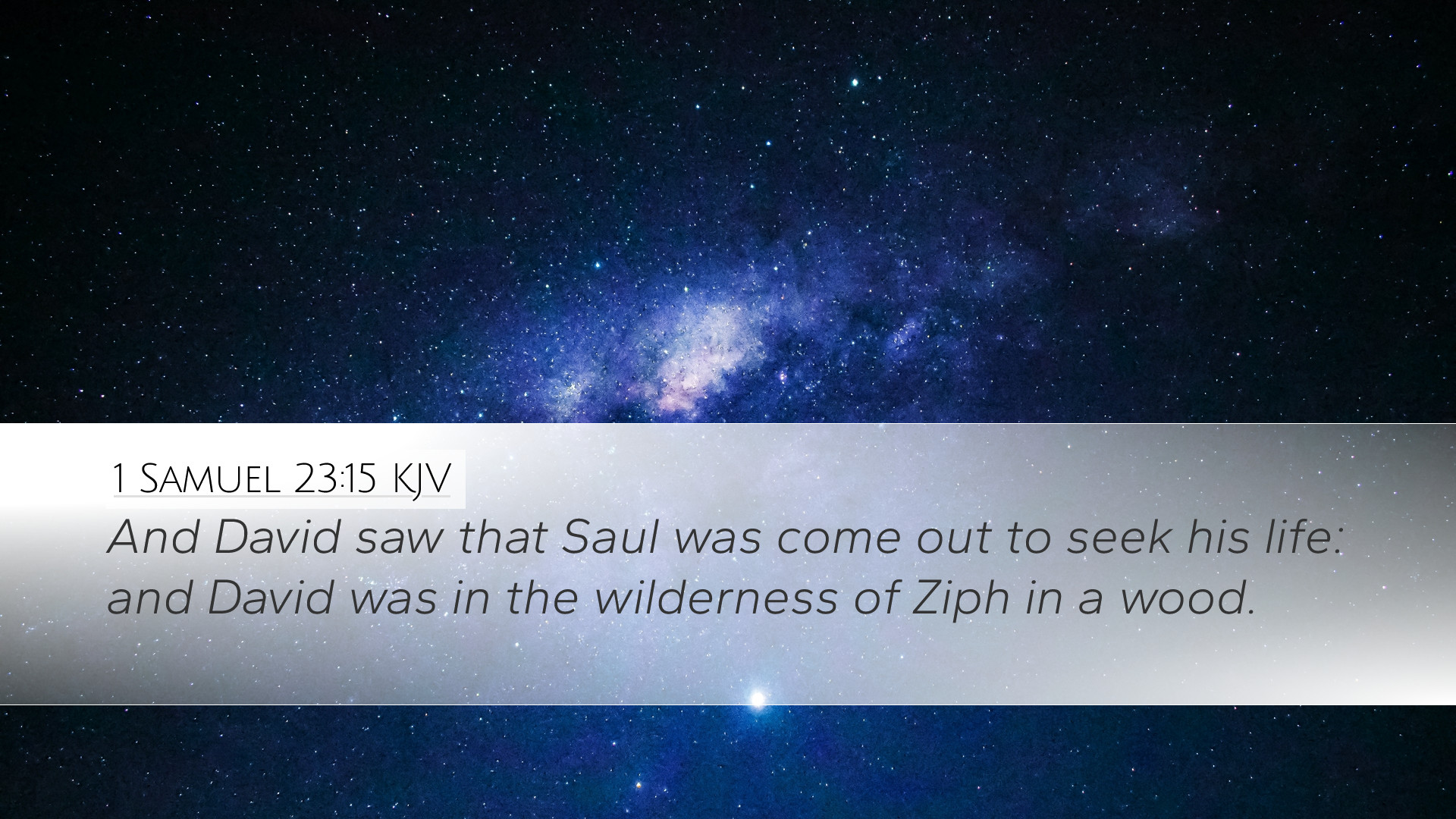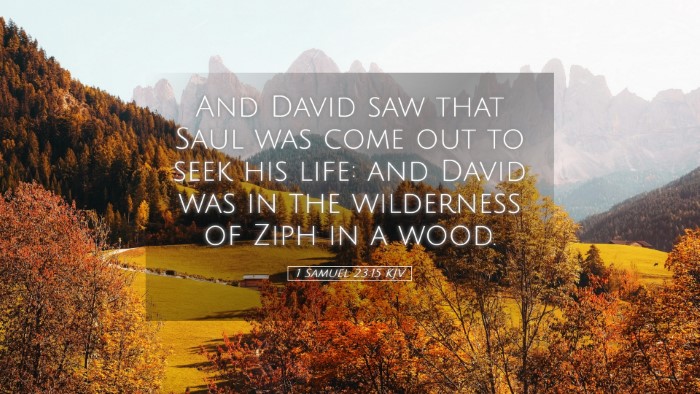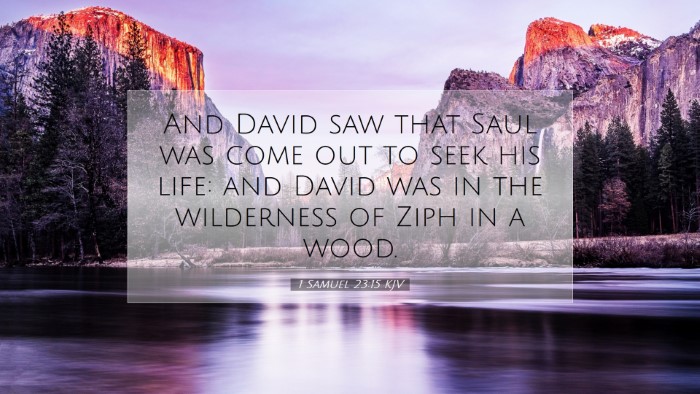Commentary on 1 Samuel 23:15
Verse Context: 1 Samuel 23:15 reads: "David saw that Saul had come out to seek his life, and David was in the Wilderness of Ziph at Horesh." This verse marks a pivotal moment in the narrative of David's life, reflecting themes of conflict, divine protection, and the perseverance of faith in times of persecution.
Overview of the Verse
This verse captures a crucial point in the protracted conflict between Saul and David. Saul, jealous and threatened by David's rising popularity and the anointing from God, relentlessly pursues David with the intent to kill him. David, now a fugitive, finds himself in the Wilderness of Ziph, a rugged and desolate place, yet it becomes a profound setting for spiritual growth and reliance on God.
Insights from Matthe Henry
Matthew Henry emphasizes the gravity of Saul's pursuit and David's plight. He notes the profound psychological toll that such fear and danger can inflict on a person, especially a future king. Henry highlights David's awareness of Saul's intentions, marking a key point in his relationship with God and the deepening of his faith during this period of trial.
- David’s Awareness: Henry points out that David is not unaware of the threats against him; he appreciates the reality of his situation while maintaining faith in God's protection and guidance.
- The Wilderness as a Testing Ground: The wilderness represents not only a place of danger but also a necessary interim period of preparation for David, where he learns to rely completely on God.
Albert Barnes' Perspective
Albert Barnes provides an analytical view of the geographical and emotional significance of this verse. The Wilderness of Ziph is portrayed as a place of both refuge and peril.
- Geographical Significance: Barnes notes that the Wilderness could serve as both a hiding place and a location of danger; its rugged terrain offers natural concealment for David, yet it is also a landscape fraught with hardship.
- Emotional Turmoil: He discusses how the continual threat from Saul encapsulated the emotional turmoil of David, making this chapter a critical juncture in the narrative of faith amidst adversity.
Adam Clarke's Commentary
Adam Clarke adds a more in-depth theological reflection on the implications of the events surrounding David’s experience in Ziph. Clarke views David's trials as a precursor to his ultimate role as king, maintaining that these experiences were instrumental in shaping David’s character and leadership.
- The Providence of God: Clarke emphasizes that even in the darkest hours, God's providence was actively guiding David, providing necessary support through Jonathan and other allies.
- Preparation for Leadership: Clarke contends that David’s time in the wilderness was essential to his development as a leader. The struggles he faced refined his character, fostering qualities that would prepare him for kingship.
Theological Implications
This verse and the surrounding narrative highlight several theological themes:
- Faith in Adversity: The lesson of trusting in God’s provision, even when circumstances seem dire. David's continual reliance on prayer and God’s direction exemplifies this faith.
- The Role of Divine Providence: The assurance that God watches over His chosen ones, even when faced with formidable enemies.
- Preparation for God’s Plan: The wilderness experience as a necessary phase, echoing Scripture's pattern where God often prepares His servants in isolation and hardship for future service.
Applications for Today’s Believers
As pastors, students, theologians, and Bible scholars reflect on 1 Samuel 23:15, several applications emerge:
- Embrace the Wilderness: Recognizing that times of personal wilderness can lead to significant spiritual growth and deeper reliance on God.
- Support Systems: Encouraging active support for those undergoing trials, akin to the relationship between David and Jonathan.
- Faithfulness Amidst Fear: Understanding that fear may be a natural response to danger but faith can overcome it. Seek God's guidance continually as modeled by David.
Conclusion
1 Samuel 23:15 stands as a testament to the struggles faced by God’s faithful servants. The insights from Matthew Henry, Albert Barnes, and Adam Clarke collectively emphasize the importance of faith, God’s providential care, and the critical development of character amidst trials. As modern believers engage with this text, they are reminded of the enduring truth that the wilderness, while daunting, can also be a womb of spiritual renewal and preparation for God's greater plans.


